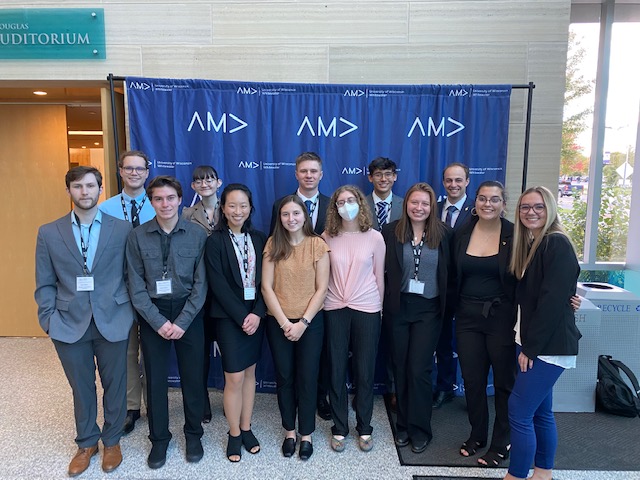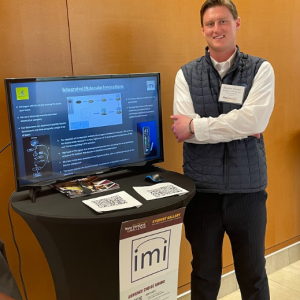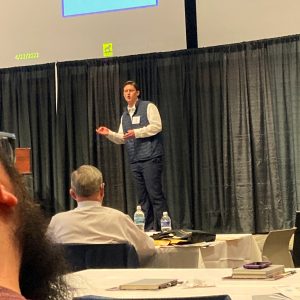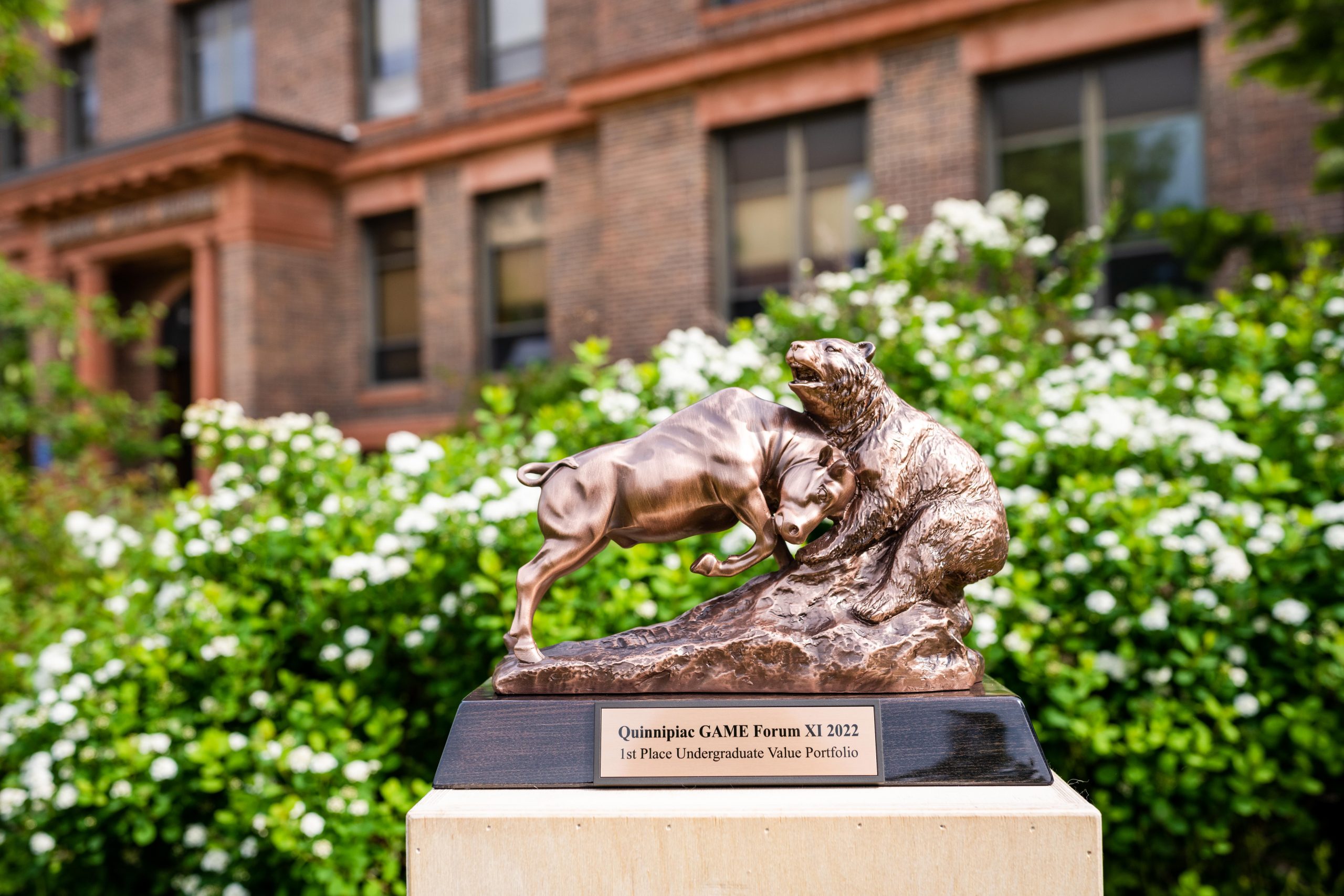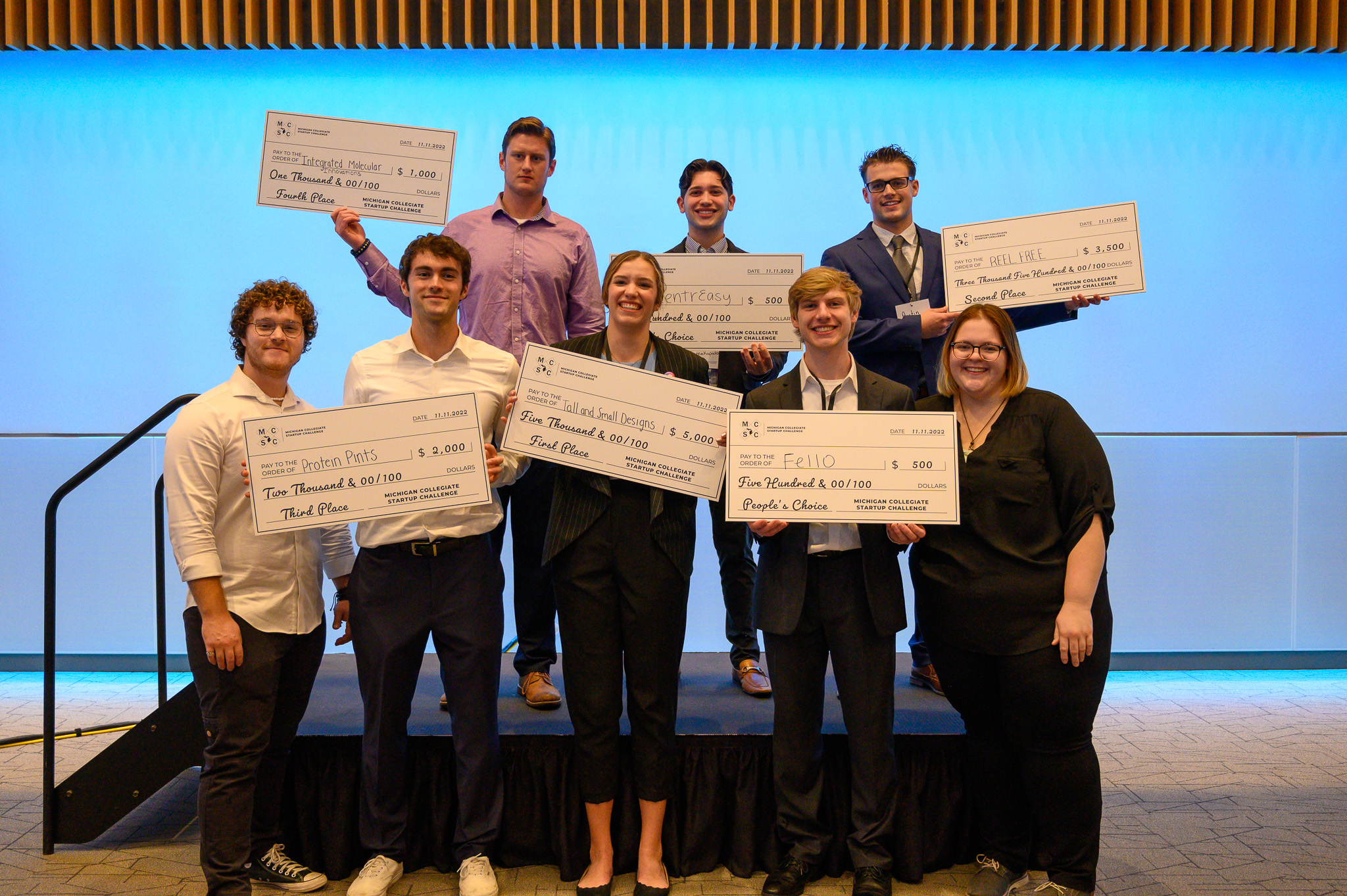
By Jessie Stapleton, Shannon Rinkinen
On Friday, November 11, four Huskies representing three teams pitched their business ideas at Michigan State University during the Michigan Collegiate Startup Challenge (MCSC), competing for more than $12,000 in cash prizes. MCSC is Michigan’s university-level business model competition specifically designed for student entrepreneurs across the state. The second-annual MCSC, sponsored by the Michigan Economic Development Corporation, fosters entrepreneurship by encouraging commercialization of ideas.
Twenty semifinalists representing nine schools pitched their ideas, including the following Michigan Tech teams:
- Jordan Craven (management information systems), Tall and Small Designs
- Anastasia (Asia) Motta (engineering management) and Zane Smalley (software engineering), The Droplet
- Rourke Sylvain (biomedical engineering), Integrated Molecular Innovations
Craven took first place, winning $5,000, for Tall and Small Designs, a retailer software service providing form-fitting mockups of online clothing products for consumers. Sylvain, of Integrated Molecular Innovations, an electrochemical biosensor for at-home detection of T4 thyroid levels, earned fourth place, netting $1,000.
Students spent the first portion of the day pitching their ideas to judges. Ten startups were selected to move to the finalist showcase round.
Hosted by Michigan State, the pitch competition was a collaboration between Central Michigan University, Eastern Michigan University, Ferris State University, Kendall College of Art and Design, Grand Valley State University, Michigan State University, Michigan Technological University, Mid-Michigan College, Northern Michigan University, and Wayne State University.
About the College of Business
The Michigan Tech College of Business offers undergraduate majors in accounting, business analytics, construction management, economics, engineering management, finance, management, management information systems, and marketing, as well as a general business option. Graduate degrees include the TechMBA®, a Master of Engineering Management, a Master of Science in Accounting, and a Master of Science in Applied Natural Resource Economics.
